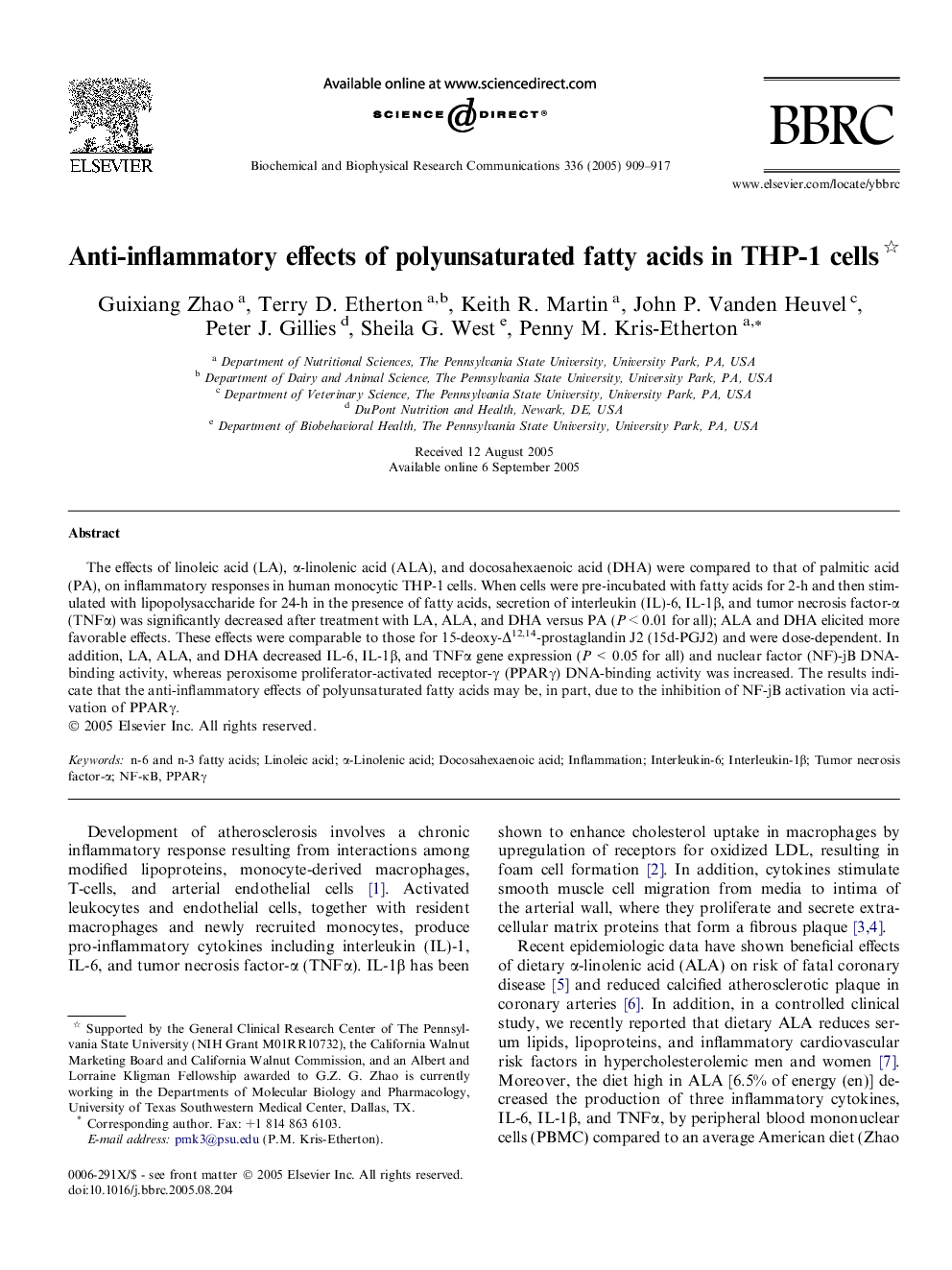| Article ID | Journal | Published Year | Pages | File Type |
|---|---|---|---|---|
| 10768000 | Biochemical and Biophysical Research Communications | 2005 | 9 Pages |
Abstract
The effects of linoleic acid (LA), α-linolenic acid (ALA), and docosahexaenoic acid (DHA) were compared to that of palmitic acid (PA), on inflammatory responses in human monocytic THP-1 cells. When cells were pre-incubated with fatty acids for 2-h and then stimulated with lipopolysaccharide for 24-h in the presence of fatty acids, secretion of interleukin (IL)-6, IL-1β, and tumor necrosis factor-α (TNFα) was significantly decreased after treatment with LA, ALA, and DHA versus PA (P < 0.01 for all); ALA and DHA elicited more favorable effects. These effects were comparable to those for 15-deoxy-Î12,14-prostaglandin J2 (15d-PGJ2) and were dose-dependent. In addition, LA, ALA, and DHA decreased IL-6, IL-1β, and TNFα gene expression (P < 0.05 for all) and nuclear factor (NF)-κB DNA-binding activity, whereas peroxisome proliferator-activated receptor-γ (PPARγ) DNA-binding activity was increased. The results indicate that the anti-inflammatory effects of polyunsaturated fatty acids may be, in part, due to the inhibition of NF-κB activation via activation of PPARγ.
Keywords
Related Topics
Life Sciences
Biochemistry, Genetics and Molecular Biology
Biochemistry
Authors
Guixiang Zhao, Terry D. Etherton, Keith R. Martin, John P. Vanden Heuvel, Peter J. Gillies, Sheila G. West, Penny M. Kris-Etherton,
